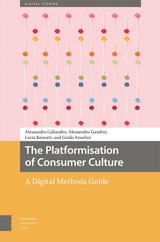
The phenomenon of voluntary self-starvation—whether by political hunger strikers or lone anorexics—is a puzzle of engrossing power, suggesting a message more resonant and radical than any uttered aloud. In this fascinating phenomenology, Maud Ellmann teases out this message, its genesis, expression, and significance. How, she asks, has the act of eating become the metaphor for compliance, starvation the language of protest? How does the rejection of food become the rejection of intolerable social constraints—or of actual imprisonment? What is achieved at the culmination of such a protest—at the moment of death? Ellmann brilliantly unravels the answers; they lie, she shows, in the inverse relationship between bodily hunger and verbal expression, especially the written word.
Ellmann explores Yeats's idea of hunger as the food of poetry, Dickinson's belief that by abjuring food one could subsist as a god, and the dramatic messages of our century of starvers from Mahatma Ghandi to Jane Fonda. Central to her discussion is a striking comparison between the Irish Hunger Strike of 1981 and the plot of Richardson's Clarissa, in which a young woman starves to death in penance for—or, perhaps, revenge against—her rape. Both cases exhibit an extreme abundance of written words in the face of diminishing flesh.
The Hunger Artists plumbs this vampirical feeding of words on flesh, revealing strange and undeniable affinities between the labor of starvation and the birth of letters, diaries, poems, books. Ellmann works in the spirit of Kafka, who, emaciating his prose, slimmed the weighty nineteenth-century novel into compelling short tales; her prose is crisp, her message clear. She takes the bodily metaphors to their literal conclusion, to the death beds of Clarissa Harlowe and Bobby Sands, and thereby allows those bodies and those metaphors to speak to us anew.

T. S. Eliot and Ezra Pound dominated English poetry and criticism in the first half of the twentieth century. At the center of their practice is what Maud Ellmann calls the poetics of impersonality. Her examination yields a set of superb readings of the major poems of the modernist canon. Eliot and Pound mounted attack after attack on nineteenth-century poetry from Wordsworth to Swinburne, poetry they believed nurtured an unhealthy cult of the self. They wanted poetry to be a transparent medium that gives its readers access to reality and meaning. Poetry, they argued, should efface itself, because writing that calls attention to itself calls attention to the distinctive personality of the writer. Ellmann convincingly shows that their arguments are self-contradictory and that their efforts to eliminate personality merely reinstate it in a different guise.
After an initial section on Eliot’s relation to Bergson, Ellmann goes on to analyze Eliot’s “Tradition and the Individual Talent” and the later After Strange Gods, the early poems, The Waste Land, and Four Quartets; she then turns to Pound’s Personae, particularly “Mauberley,” and the Cantos. Ellmann looks for the contradictions inherent in modernist literary ideology and deftly teases out their implications. Her writing is stylish in the best sense and, in terms of its theoretical vocabulary and assumptions, impeccable. This book marks the debut of a major literary critic.
READERS
Browse our collection.
PUBLISHERS
See BiblioVault's publisher services.
STUDENT SERVICES
Files for college accessibility offices.
UChicago Accessibility Resources
home | accessibility | search | about | contact us
BiblioVault ® 2001 - 2024
The University of Chicago Press









